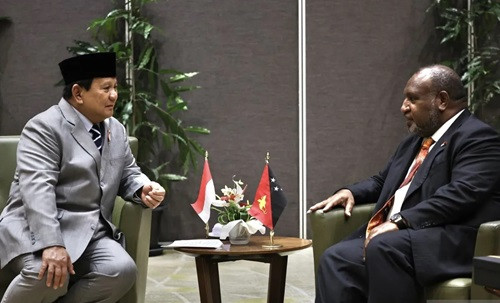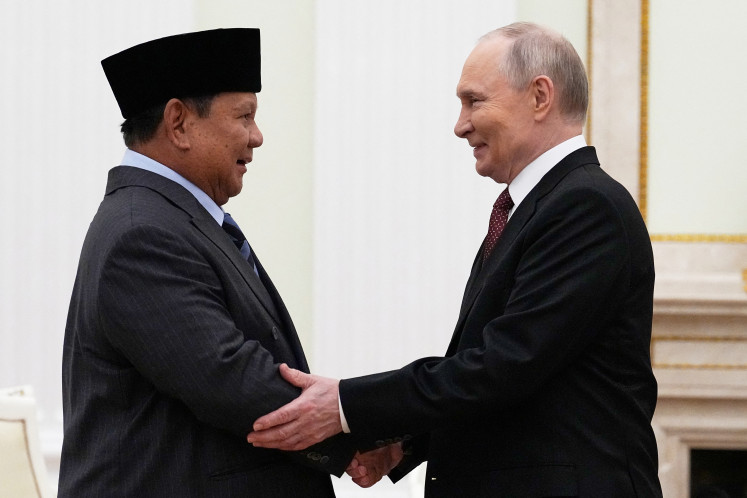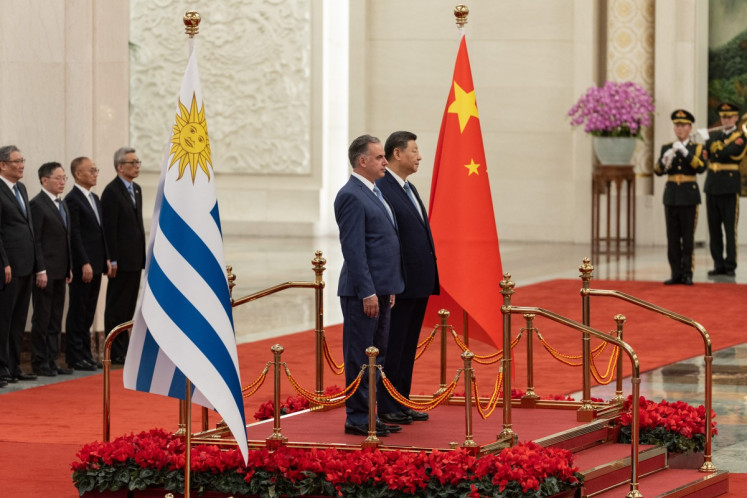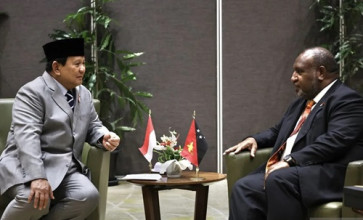Popular Reads
Top Results
Can't find what you're looking for?
View all search resultsPopular Reads
Top Results
Can't find what you're looking for?
View all search resultsNew president and Indonesia’s foreign policy in Pacific
Indonesia's involvement in Pacific regional institutions is limited, mainly due to a lack of Pacific literacy among relevant stakeholders and the Indonesian public.
Change text size
Gift Premium Articles
to Anyone
P
resident-elect Prabowo Subianto has indicated his desire for more active engagement by Indonesia on the global level. However, for the Pacific region, which has long been considered the backyard of Indonesia’s foreign policy, Prabowo’s vision remains unclear.
Currently, the only progressing agenda for Indonesia has been to boost the country’s economic cooperation with Island countries in the region at the expense of regional concerns over protracted armed conflict and allegedly rampant human rights violations in Papua. The Prabowo administration needs to prioritize the sustainability of its engagement in the Pacific region, forging non-political cooperation while avoiding divisive issues like Papua.
Following his visit to Australia in August to strengthen bilateral cooperation, including signing a defense agreement, Prabowo continued his diplomatic engagement in Papua New Guinea (PNG). The professional courtesy between Prabowo and James Marape, both in Jakarta and Port Moresby, clearly demonstrated Indonesia's commitment to enhancing the bilateral relationship between the two neighbors, particularly in the areas of economy, defense and education.
When Marape met outgoing President Joko “Jokowi” Widodo in July, Indonesia agreed to harness sectoral cooperation with PNG in transportation, electricity, education and trade, as well as security and defense.
Regarding trade, however, Indonesia, PNG and Fiji still need to work on the preferential trade agreement (PTA). Although the trade value among the three countries has increased in the past decade, and PNG and Fiji have been the largest recipients of Indonesian aid, grants and technical assistance, the countries have not reached common ground regarding the PTA.
Since the first negotiation in 2019, the three countries have found more challenges to making the PTA a reference point of trade, partly due to Indonesia’s domestic concerns over the PTA’s impact on the country’s trade balance and the potential benefit of goods and products in markets of the Pacific countries.
One study has found that Indonesia has experienced trade deficits following the implementation of PTAs with over 40 countries. To mitigate potential trade imbalance between Indonesia and the Pacific Island countries could expand trade beyond agricultural products. While an increasing number of Indonesian products are being exported to the Pacific markets, the incoming government must also help the island countries produce local goods and build infrastructure that fosters regional growth in the Pacific.



















